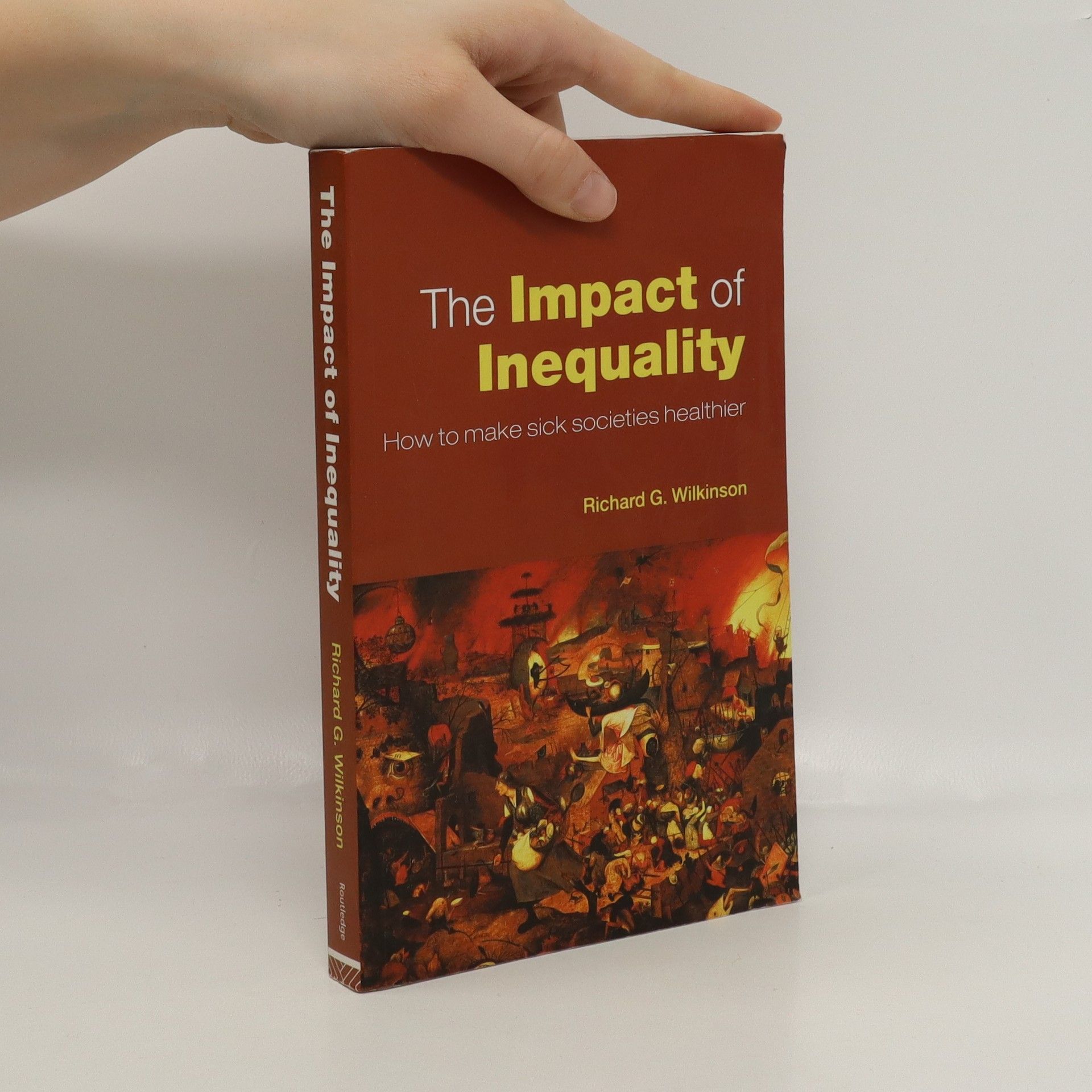The book critically examines societal development, questioning the reasons behind the disparity between primitive and advanced societies. Through a thought-provoking analysis, it offers insights that challenge conventional beliefs about societal progress. The reissue includes a new Preface, enhancing its relevance and encouraging readers to reconsider their understanding of civilization's evolution.
Richard G. Wilkinson Reihenfolge der Bücher (Chronologisch)
Richard G. Wilkinson ist ein Forscher, der sich auf soziale Ungleichheiten im Gesundheitswesen und deren gesellschaftliche Determinanten konzentriert. Seine Arbeit untersucht kritisch, wie eine ungleiche Einkommensverteilung innerhalb einer Gesellschaft die Gesundheit ihrer Bevölkerung negativ beeinflusst. Er vertritt die Ansicht, dass egalitärere Gesellschaften bessere Gesundheitsergebnisse aufweisen als solche mit größeren Disparitäten zwischen den Reichsten und Ärmsten.





چرا برابری به سود همگان است
In jahrzehntelanger Forschung haben die beiden Wissenschaftler Richard Wilkinson und Kate Pickettempirische Daten gesammelt und ausgewertet, anhand derer sie den Einfluss der Ungleichheit auf eine Vielzahl der drängendsten sozialen Probleme entwickelter Gesellschaften untersuchen. Die geistige Gesundheit oder der Drogenkonsum der Mitglieder einer Gesellschaft, Lebenserwartung, Gesundheit, Übergewicht, Bildung, die Geburtenrate bei Minderjährigen, die Verbrechensrate und nicht zuletzt die soziale Mobilität: All diese Phänomene hängen statistisch eindeutig davon ab, wie ungleich die Einkommens- und somit Chancenverteilung einer Gesellschaft ist. Ab einem gewissen Einkommensniveau, das etwa auf der Höhe dessen von – ausgerechnet – Kuba liegt, ist es eben nicht mehr die Höhe des Durchschnittseinkommens, die es den Menschen immer bessergehen lässt, sondern die Verteilung des Einkommens.
The impact of inequality : how to make sick societies healthier
- 304 Seiten
- 11 Lesestunden
In this book, pioneering social epidemiologist Richard Wilkinson, shows how inequality affects social relations and well-being. In wealthy countries, health is not simply a matter of material circumstances and access to health care; it is also how your relationships and social standing make you feel about life. Using detailed evidence from rich market democracies, the book addresses people's experience of inequality and presents a radical theory of the psychosocial impact of class stratification. The book demonstrates how poor health, high rates of violence and low levels of social capital all reflect the stresses of inequality and explains the pervasive sense that, despite material success, our societies are sometimes social failures. What emerges is a new conception of what it means to say that we are social beings and of how the social structure penetrates our personal lives and relationships.
Unhealthy Societies
- 268 Seiten
- 10 Lesestunden
Among the developed countries it is not the richest societies which have the best health, but those which have the smallest income differences between rich and poor. Inequality and relative poverty have absolute effects: they increase death rates. But why? How can smaller income differences raise average life expectancy?Using examples from the USA, Britain, Japan and Eastern Europe, and bringing together evidence from the social and medical sciences, Unhealthy Socities provides the explanation. Healthy, egalitarian societies are more socially cohesive. They have a stronger community life and suffer fewer of the corrosive effects of inequality. As well as inequality weakening the social fabric, damaging health and increasing crime rates, Unhealthy Societies shows that social cohesion is crucial to the quality of life.The contrast between the material success and social failure of modern societies marks an imbalance which needs attention. The relationship between health and equality suggests that important social needs will go unmet without a larger measure of social and distributive justice. This path-breaking book is essential reading for health psychologists, sociologists, welfare economists, social policy analysts and all those concerned with the future of developed societies.